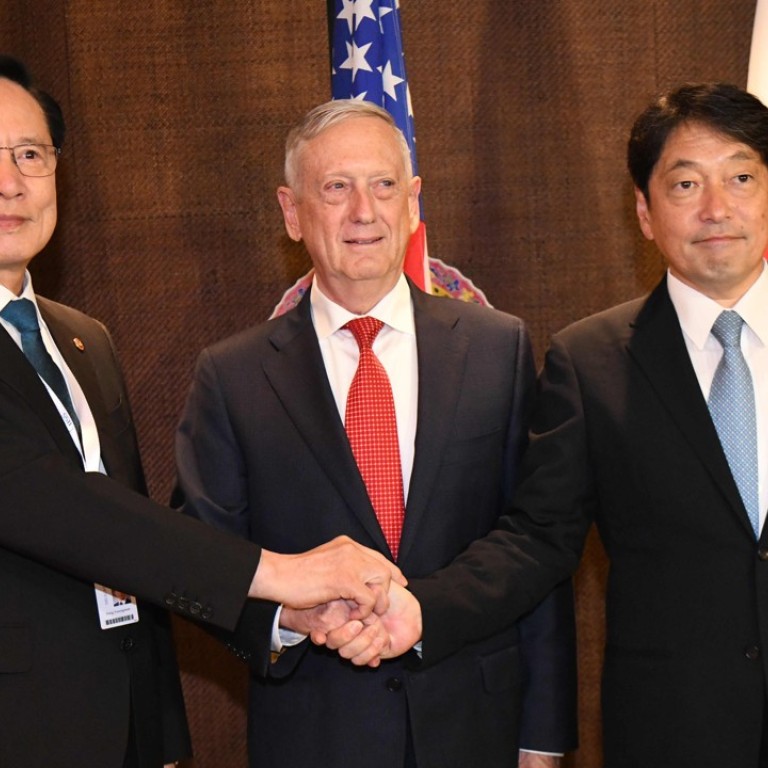
No North Korea sanctions relief until verifiable ‘denuclearisation’, Mattis says
Speaking in Singapore at the start of a meeting with the defence ministers of South Korea and Japan, US Secretary of Defence James Mattis warned that ‘we can anticipate at best a bumpy road to the negotiations’
North Korea will not get any sanctions relief until it has demonstrated “irreversible” steps to denuclearisation, US Defence Secretary Jim Mattis said Sunday.
Speaking at a security conference in Singapore ahead of a planned summit between President Donald Trump and North Korean leader Kim Jong-un, Mattis said it is vital that the international community keeps UN Security Council sanctions in place for now.
“North Korea will receive relief only when it shows verifiable and irreversible steps to denuclearisation,” Mattis said during public remarks at a meeting with the South Korean and Japanese defence ministers.
“In this moment we are steadfastly committed to strengthening even further our defence cooperation as the best means to preserving the peace.”
South Korean Defence Minister Song Young-moo said that given recent developments in North Korea, “one can be cautiously optimistic as we go forward”.
Mattis has tended to stay away from commenting publicly on the upcoming summit, which Trump has confirmed will take place in Singapore on June 12, and instead deferred to the State Department.
The key task ahead of the summit is to settle the agenda. The main stumbling block is likely to be the concept of “denuclearisation” – both sides say they are in favour of it, but there is a yawning gap between their definitions.
Washington wants North Korea to quickly give up all its nuclear weapons in a verifiable way in return for sanctions and economic relief.
But analysts say North Korea will be unwilling to cede its nuclear deterrent unless it is given security guarantees that the US will not try to topple the regime.
“We can anticipate at best a bumpy road to the negotiations,” Mattis said.
“As defence ministers we must maintain a strong collaborative defensive stance so we enable our diplomats to negotiate from a calm position of strength in this critical time.”
It was the first time since October last year for the Japanese, US, and South Korean defence chiefs to hold trilateral talks.
After the meeting, Onodera told reporters the three “agreed to closely cooperate to compel North Korea to take concrete steps” in a complete, verifiable and irreversible manner.
Onodera said he told Mattis and Song that Japan was keen to resolve the issue of North Korea’s abductions of Japanese nationals in the 1970s and 1980s and to make Pyongyang give up its short- and medium-range ballistic missiles capable of hitting Japan.
On Saturday, Onodera said in a speech at a session of the Shangri-La Dialogue: “We recognise that pressure will be maintained,” adding, “We should not give rewards (to North Korea) only because (Pyongyang) has agreed to hold dialogue.”
He also said North Korea has “deceived” the international community in the past, but Song, who attended the same session as Onodera, criticised the Japanese minister, saying progress will “not be made without negotiations”.
Onodera and Song were to hold bilateral talks separately later Sunday.
Additional reporting by Bloomberg and Kyodo

.png?itok=arIb17P0)